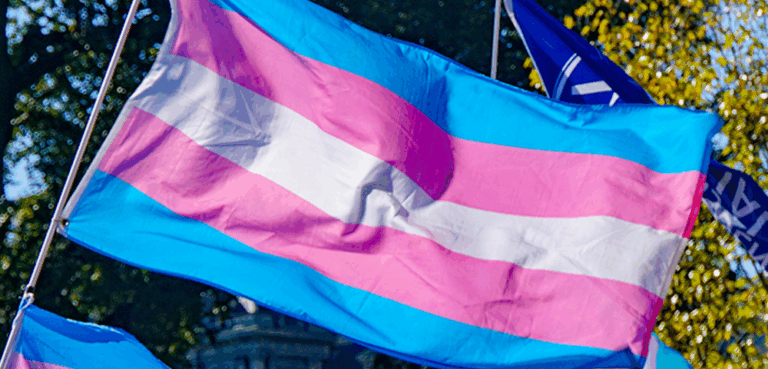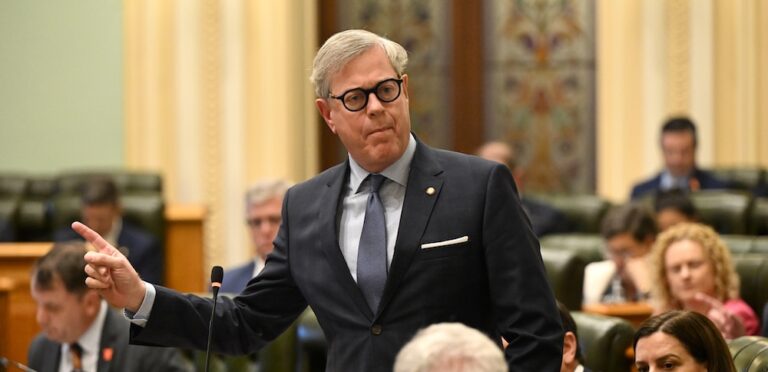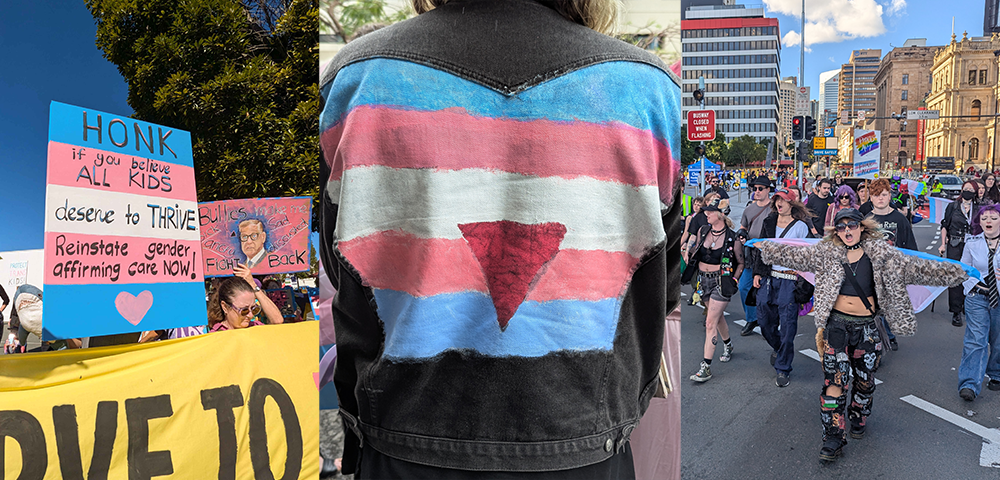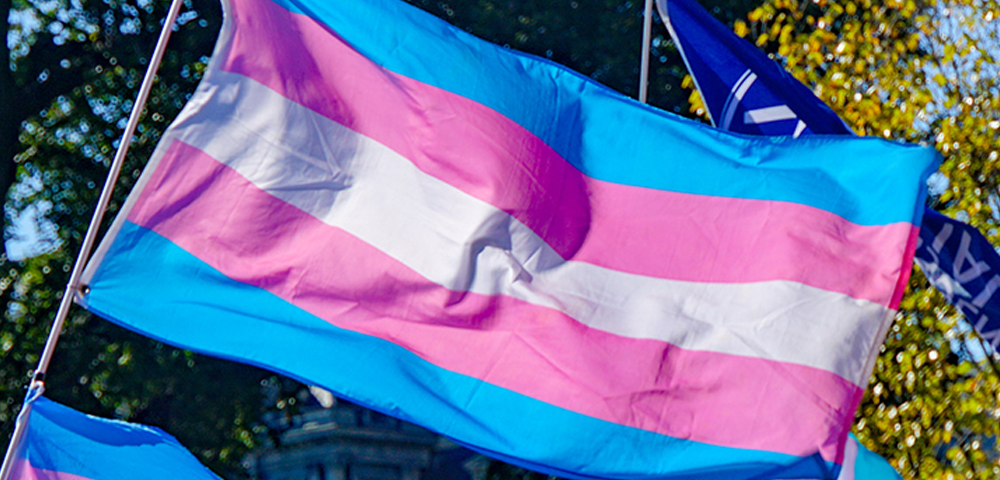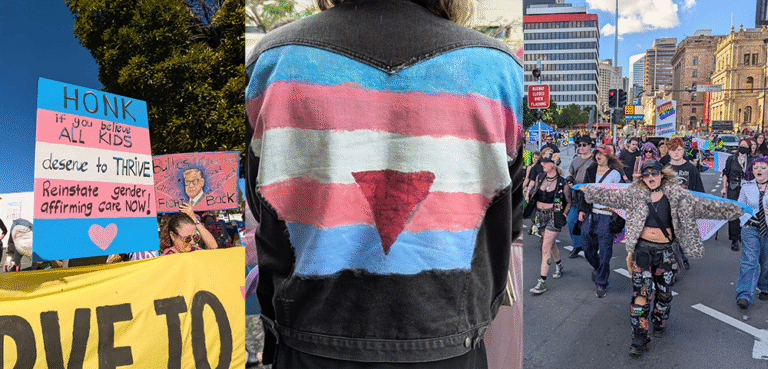
EXPLAINER: Here’s How Trump’s ‘One Big Beautiful Bill’ Would Ban All Govt-Funded Trans Healthcare
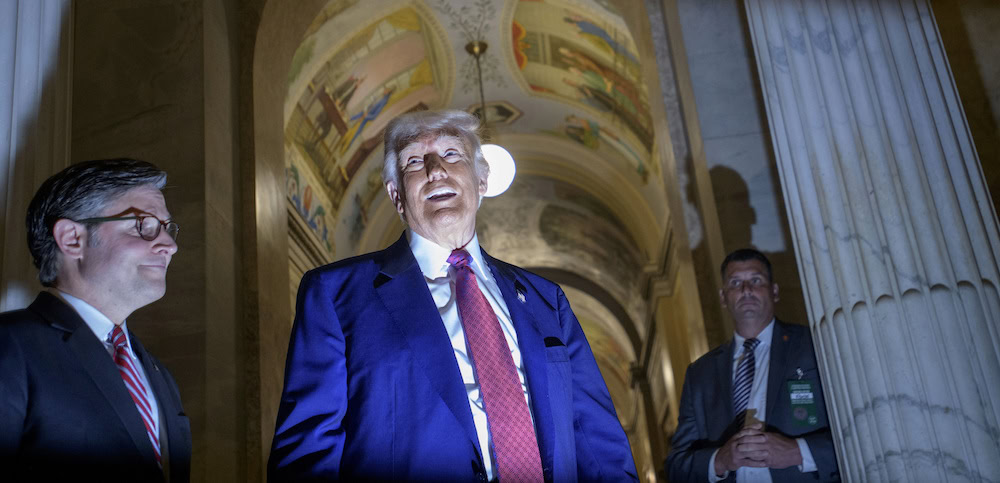
What started as a ban on healthcare for trans youth has turned into a blanket prohibition on federally-funded healthcare for trans people of any age. President Donald Trump’s budget reconciliation bill, referred to as the ‘One Big Beautiful Bill’ Act or HR1, also redefines sex in federal law.
The wide-ranging bill removes gender-affirming healthcare from Obamacare plans, dramatically cuts funding to Medicare and Medicaid, bans federal funding for clinics that offer abortion, institutes further tax cuts for the wealthy, and increases spending on immigration enforcement by over $150 billion — including $45 billion for new detention centres.
HR1 passed the House 215–214 with every Democrat and two Republicans voting against it.
The bill now heads to the US Senate with only a simple majority needed for it to pass.
The One Big Beautiful (anti-trans) bill to rule them all
The bill originally only banned federally funded trans healthcare for children, but a late-night amendment by Jodey Arrington of Texas removed the words “for minors” and “under 18 years of age” from the text. This means the ban would apply to all trans people who use a federally funded healthcare scheme – more than a quarter of a million people.
In a section titled ‘Prohibiting federal Medicaid and CHIP funding for gender transition procedures for minors’, the bill modifies the Social Security Act to ban funding for “gender transition procedures”.
On page 346, the bill defines a “gender transition procedure” as “a means, with respect to an individual, any of the following when performed for the purpose of intentionally changing the body of such individual (including by disrupting the body’s development, inhibiting its natural functions, or modifying its appearance) to no longer correspond to the individual’s sex” followed by a comprehensive list of gender affirming medical procedures.
It further defines a woman as “an individual who naturally has, had, will have, or would have, but for a developmental or genetic anomaly or historical accident, the reproductive system that at some point produces, transports, and utilises eggs for fertilisation.”
It defines a man as “an individual who naturally has, had, will have, or would have, but for a developmental or genetic anomaly or historical accident, the reproductive system that at some point produces, transports, and utilises sperm for fertilisation.”
This restriction on “gender transition procedures” would apply exclusively to trans people. Cisgender people would still be eligible for hormones and gender affirming surgery as these would not “change the body” in a way that “no longer correspond(s) to the individual’s sex”.
In addition to instituting a rigid and reproduction-based definition of sex, this phrasing effectively erases many intersex people and ends recognition of non-binary people.
The ban on federally funded trans healthcare comes as Trump’s government expels trans people from the military, cuts funding to LGBTQIA+ health research, and shuts down LGBTQIA+ support services.
How this works in the context of US healthcare
In the US, people pay for their healthcare through a patchwork of private insurance and public schemes. Most Americans have private health insurance that is chosen and partly subsidised by their employer.
Medicare, a federal government scheme, pays for some healthcare for people over 65, and for some younger people with disabilities. Medicaid and the Children’s Health Insurance Program (CHIP) cover many healthcare costs for low-income adults, pregnant people, and children, with eligibility and benefits varying from state to state.
The Affordable Care Act (ACA – also known as Obamacare) created online insurance marketplaces where people could compare and buy private health insurance policies. It also established subsidies for low-income households, banned insurers from denying coverage for pre-existing conditions, and made it compulsory for policies to cover essential services like maternity care, mental health treatment and prescription medication.
Trans healthcare isn’t explicitly called an essential service, but sex discrimination laws in the US have generally meant that healthcare that is available to cis people on an insurance policy (like hormones and surgery) is also available to trans people.
HR1 threatens healthcare for trans people who are on Medicaid, CHIP, have an ACA policy, or have an insurance policy that operate to the same standard as an ACA policy.
If HR1 goes ahead, trans people on these plans would have to pay full-price for things like hormones, blood tests, endocrinologist visits, and surgery, out of their own pockets (like most of us here in Australia). This means most would not be able to afford to medically transition, or need years to save up.
According to a 2022 Williams Institute report, approximately 276,000 transgender people use Medicaid. Many already live in states where gender affirming healthcare is restricted, but HR1 would impose a nationwide ban.
However, HR1 specifically guarantees coverage for those who want to de-transition.
One Big Beautiful Bill / HR1: What happens next?
The bill now heads to the Senate for review. From here, all Democrat senators and at least four Republicans would need to vote against the bill for it not to go ahead. There’s also a possibility that the legislation could be amended and sent back to the House for further debate.
Rejection is a real possibility – the bill contains a number of controversial proposals that have been criticised by both moderate and fiscally conservative Republicans.
The Washington Post reports that some Republicans initially against the bill were summoned to the White House, and allegedly told that voting against it would be “the ultimate betrayal”.
However, as the bill is being passed as a budget reconciliation process rather than an ordinary piece of legislation, fewer options exist for filibuster or legal challenges.
The Congressional Equality Caucus, which represents LGBTQIA+ lawmakers, condemned the bill as a “GOP tax scam” that takes money from the poorest and gives it to the richest. “Attacks on the trans community are just the cherry on top,” said caucus chair Mark Takano.
“Regardless of how any one of us personally feels about the issue of trans peoples’ medical care, we should all be able to agree that the only people who should be making these decisions are patients, providers, and parents in the case of young people—not politicians,” he said.
“Congress should be working to make healthcare more affordable—not banning coverage of medically necessary care or pulling the rug out from underneath millions of Americans who rely on Medicaid. If we really want to honor the idea of freedom our nation was founded on, we have to protect every American’s right, including transgender people’s right, to access evidence-based care without government interference.”

